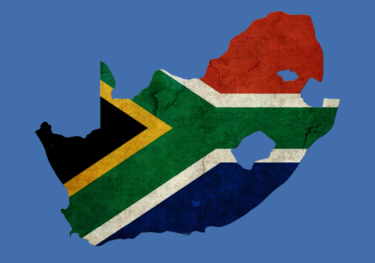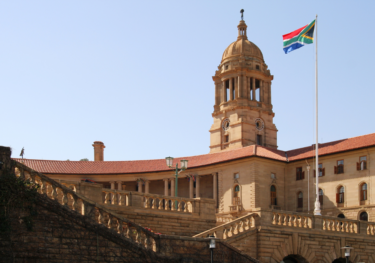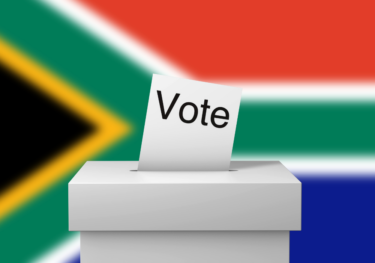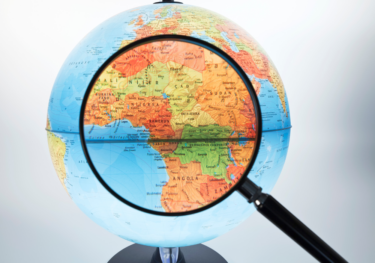Africa Insight | 09 May 2024
South Africa: Elections 2024 | ‘ANC & EFF’ election scenario

Jacques Nel
Head of Africa Macro, OE Africa

Timely insight on the continent’s most pressing issues
African political economy is consistently evolving both at a national and continental level. Robust data analysis needs to be supplemented with a deep understanding of politics on the continent. Our Africa Insights provide concise views on the most important economic and political developments on the continent, with the aim of allowing for more informed decision-making.
Our latest video
(J.Nel) Hello and thanks for joining us for this Africa Insight.
Today we discussing the second of four scenarios that we ran for South Africa’s general elections to be held later this month. Today’s scenario is what many would consider the downside scenario, which is an ANC, EFF coalition.
My name is Jacques Nel. I’m joined by my colleague Louw Nel. Louw, can you please give an overview of how we see the scenario playing out?
(L.Nel) So, scenario two is similar to scenario three is that it presupposes the ANC has a terrible day at the polls and their return is in the 40%, 40 to 44% range, in which case they’re unable to form a coalition government with the smaller parties.
As we discussed in our baseline scenario last week. This forces them to turn to one of the two larger opposition parties, and their options being the Democratic Alliance, the Liberal Party, or the populist leftist Economic Freedom Fighters which is a scenario we’re looking at right now.
The EFF would also help them with their provincial problem their support in Gauteng and KwaZulu-Natal is even worse than it is nationally. And so the EFF will also help them form governments in those two crucial provinces perhaps even wrestle away the Western Cape from the Democratic Alliance.
A combined total of maybe 230 seats, between those two parties. Supposing that the EFF continues to grow as it has in every subsequent election cycle, will allow them to govern pretty much as they see fit. The EFF will not enter into this arrangement without demanding significant concessions including leadership positions.
The leader of the EFF has already said that they will go into a coalition with the ANC if his deputy Floyd Shivambu, is made finance minister. Now the ANC chairperson Gwede Mantashe has said that no such thing as going to happen. But it doesn’t mean that the EFF might not come away with cabinet positions and economic cluster which is very much what they want.
Probably not Finance minister but perhaps something like Mr Mantashe’s but Mr Mantashe’s portfolio which is mineral, mineral resources and energy. We’ll see the EFF force the ANC further left force them to go in a direction that they’ve always wanted
the ANC to chart very much the raison d’etre of the of the EFF was always to force the ANC to implement more radical and more leftist policies. And we’ll see them try and force the party left but perhaps not as far left as they would like.
And the ANC might allow the EFF to pursue certain policy positions without conceding to all of them the EFF will carefully choose those policy positions the one that will earn them the most credit and the most publicity as it were but without forcing the entire government to shift along with them. This is the Doomsday Coalition according to the Democratic Alliance.
Having run the numbers, having run the modeling, Jacques, is it as doomsday as the DA suggests?
(J.Nel)No, that’s not what we find it is the downside scenario. Among the four that we are looking at the markets would react in a in a way similar to a doomsday outcome. We expect the rand to reach around 21.5 to the dollar in Q3 just after coalition is confirmed. But we do expect it to claw back some of those losses later in the year ending the year at around 20 rand to the dollar versus the baseline of 19 to the dollar. And this would then be due to the policy uncertainty that is created by the sort of ANC where the policy.
Where there wasn’t a lot of policy uncertainty, but now them veering to the left. What’s that going to mean for policy? This would then feed into high inflation. Politisation of the central bank would also de-anchor inflation expectations. So, we see inflation averaging around 5.6% next year versus the baseline of 5%. But the most interesting developments would be in the fiscals sphere, where we see quite a pickup in recurrent spending due to increase in grant spending not to the extent that the EFF put forward in their manifesto but we do expect back to significant increase in grants together with higher borrowing costs.
We see the fiscal balance the fiscal deficit trending around 0.5 percentage points wider than our baseline, which is on a doomsday but it’s a gradual deterioration. Fiscal metrics over the medium to long term. On growth we expect growth to come in slightly lower 0.2 to 0.3 percentage points lower than baseline suggest above 1% which again isn’t doomsday.
But the nature of this growth is in favourable. It’s due to government spending and not private sector investment. So this higher inflation, weaker fiscal metrics, weaker growth would then result in weaker credit metrics. So, we then expect some credit rating downgrades of the medium term as well.
(L.Nel) And considering the EFF might have some foreign policy demands as well, we might see some of our larger trading partners taking a dim view of the country perhaps our AGOA eligibility will come into question.
(J.Nel) Yes, and that would be negative for external balances. Alright, I think let’s wrap it up there. Next week we’ll be looking at the third scenario which many would consider the upside scenario or ANC, DA coalition.
Thanks again for joining. Byebye!
Click here to check out previous Africa Insight episodes.
Access the full report here
Tags:
Related Content

South Africa: Elections 2024 | ‘ANC & EFF’ election scenario
This briefing sets out the second of our four scenarios for South Africa's general election: the ANC wins only 40% of the vote and makes a coalition deal with the radical leftists of the EFF.
Find Out More
South Africa: Elections 2024 | ‘ANC & friends’ election scenario
This Research Briefing sets out the first of four scenarios for South Africa's general election on May 29. In this scenario, the ANC wins over 46% of the vote share at the national level, and forms a government by working with small, constituency-based parties.
Find Out More
Africa: Elections in 2024
This Research Briefing provides an overview of the most consequential elections being run in Africa this year: South Africa's general election, presidential and parliamentary elections in Mozambique, and presidential races in Senegal, Ghana, and Rwanda.
Find Out More
Global sustainability scramble ushers in a new era for South Africa
Africa's mineral riches are central to its history. However, the race to combat climate change has reignited interest in the continent given its vast deposits of critical minerals. Southern Africa, in particular, has received much attention with the development of several key transport corridors with the almost explicit purpose of scaling up the availability of these minerals on international markets. We set out to investigate the economic potential of the region in terms of its critical minerals while taking into consideration what the establishment of these corridors means for the regional economy.
Find Out More